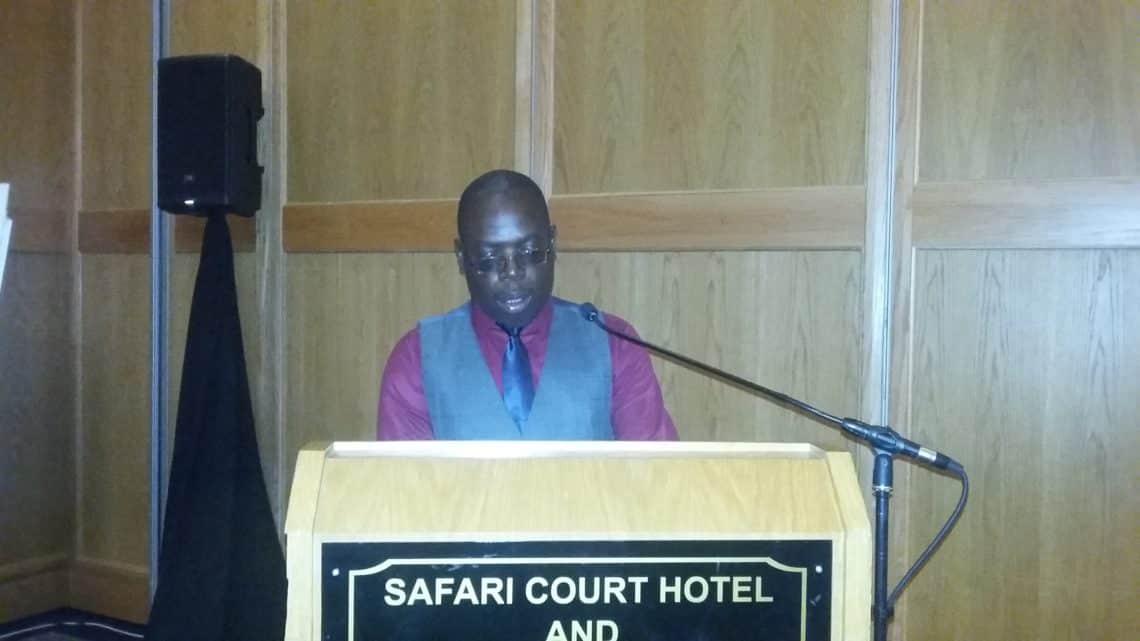By Byron Mutingwende
Despite being a continent with abundant natural resources that present a massive potential for progress, mineral leakages are hampering Africa’s development.
Dr Fanwell Kenala Bokosi, the Executive Director of the African Forum and Network on Debt and Development revealed that at the summer school on “strengthening natural resource governance in Africa” ongoing in Windhoek, Namibia from 6 to 10 November 2017.
The Summer school provides an innovative way of engaging with a core group of influencers and decision-makers to build their understanding and commitment to the key issues of concern, in particular related to illicit financial flows and natural resource governance.
“Historically African countries and people have not benefited sufficiently from Africa’s mineral wealth. The African Mining Vision therefore seeks to promote the transparent, equitable and optimal exploitation of mineral resources to underpin broad-based sustainable growth and socio-economic development on the continent,” Dr. Bokosi said.
He called on the need for optimizing knowledge and benefits of finite mineral resources at all levels of mining and for all minerals; and building human and institutional capacities towards a knowledge economy that supports innovation, research and development.
“It is important to harness the potential of small scale mining to improve their livelihoods and their integration into the rural and national economy. We should develop a diversified and globally competitive African mineral industry which contributes to broad economic and social growth through the creation of economic linkages; fostering sustainable development principles based on environmentally and socially responsible mining, which is safe and includes communities and all other stakeholders. It is equally important to promote good governance of the mineral sector in which communities and citizens participate in mineral assets and in which there is equity in the distribution of benefits. Stakeholders should also work hard to foster a transparent and accountable mineral sector in which resource rents are optimized and utilized to promote broad economic and social development,” Bokosi said.
There is a need to improve the national capacity to physically audit mineral production and exports , review mineral regimes in terms of optimising revenues and build the capacity and enhance skills of officials in negotiating fiscal issues and effectively monitoring compliance with transaction laws.
Dr. Bokosi added that it was important to develop systems to evaluate components of the regimes for leakages, losses and tax avoidance and evasion. He said it was important to manage extractive revenue volatility through the budget process and ensure that the revenue goes back to the governments.
At the moment, volumes of illicit financial flows (IFFs) from Africa are huge and have been increasing over the years. Evidence from literature on the subject of illicit financial flows, including the report of the High Level Panel on illicit financial flows from Africa, argues that if illicit outflows are curbed, and the funds used domestically, the scale of the flows involved will have significant positive impact on development, and reduce Africa’s reliance on aid and external borrowing to finance development.
Currently, illicit financial flows from Africa are estimated to be as much as USD50 billion per annum. IFFs limit government expenditure on some of the most critical sectors such as health education. Furthermore, IFFs compromises equitable control, access and ownership of natural resources. This catastrophe is not exclusive to SADC only but other African regions. It is in this view that combating IFFs remains a prerequisite for effective and efficient domestic resource mobilization and financing sustainable development.
IFFs from the African continent are highest in the extractive industries, especially oil and mining. The volumes of IFFs from the petroleum and the mining sectors in Africa far outweigh the rest of the other sectors.
Paul Msoma, the Economic Affairs Officer (mineral sector governance) of the United Nations Economic Commission for Africa said the issue was no longer about how to optimise mining through the usual recipe of measures such as improvements of legal and regulatory frameworks, tweaking the mineral fiscal regime or offering investors a predictable and stable business environment.
“It is a far deeper and fundamental structural shift, which calls for a new dispensation and paradigm change. The extractive industry is not a ‘business as usual’ venture whose destiny can be entrusted to a single entity as a Ministry of Mines, no matter how strong and well resourced. It is the business of an entire nation and its partners, including foreign direct investors,” Msoma said.






